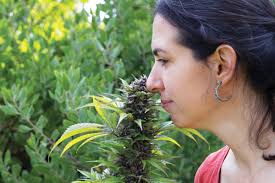California Health and Safety Code 11358 is a critical statute that deals with the cultivation of marijuana. Although recent changes in cannabis legislation have altered the legal landscape significantly, understanding the specifics of this law remains important for both legal professionals and those charged with the offense. This Code outlines the legal frameworks, potential criminal penalties, and viable defenses related to the cultivation of cannabis.
Understanding California Health and Safety Code 11358

Explanation of the specific laws and regulations outlined in the code.
California Health and Safety Code 11358 pertains to the cultivation of marijuana plants. Historically, cultivating any amount of marijuana was a criminal offense under California law. However, with the passage of Proposition 64, also known as the Adult Use of Marijuana Act, in 2016, the legal framework around the cultivation of marijuana in California experienced significant changes. Under Health and Safety Code 11358, it is now legal for adults aged 21 years or older to cultivate up to six marijuana plants for personal use.
The law also discusses the distinction between personal and commercial cultivation. Cultivating more than six plants without appropriate licensing falls outside the protections provided by personal use regulations and enters the domain of commercial cultivation, which requires a different set of licenses and compliance with distinct regulations set forth by the state.
Discussion on the permissible limits and requirements for marijuana cultivation under this statute.
Under the auspices of Health and Safety Code 11358, the cultivation of up to six plants is permissible, provided specific conditions are met:
– The cultivator must be 21 years of age or older.
– The cultivation area must be secured against unauthorized access.
Local governments may also impose additional controls, such as limits on the location of cultivation areas (such as away from schools or daycares) and rules concerning the use of artificial lighting. It is crucial for cultivators to familiarize themselves with both state laws and local municipal codes to ensure full compliance.
Penalties for Violations

Explanation of the potential consequences for breaching California Health and Safety Code 11358.
Persons found guilty of violating Health and Safety Code 11358 by cultivating more than six marijuana plants without adhering to legal guidelines face serious legal penalties. Post-Proposition 64, although the recreational use of marijuana has been legalized, penalties still exist for non-compliance. The penalties depend significantly on the number of plants involved and the cultivator’s criminal history.
A breach of the six-plant restriction usually results in misdemeanor charges. Typical penalties include but are not limited to, fines, compulsory community service, drug education programs, and potentially probation. Importantly, repeated offenses or the involvement of aggravated factors—like previous criminal convictions, the presence of minors, or the employment of hazardous substances in the cultivation process—could escalate charges to a felony level, which carries more severe consequences.
Details on the fines, imprisonment, and other disciplinary actions that may result from violations.
For persons charged with a misdemeanor under California Health and Safety Code 11358, fines can reach up to $500, and the cultivation offense can attract up to six months in a county jail. For those who are facing felony charges due to more severe violations of the Code—such as having a significant criminal record or cultivating a large number of plants—the fines can be considerable, and the convicted individual may face imprisonment ranging from 16 months to three years. It’s also possible for additional penalties to be levied based on the specifics of the case, including longer probation periods, larger fines, or mandated participation in community service or drug rehabilitation programs.
It is essential for individuals who are cultivating marijuana to consult and adhere fully to both state statutes and local ordinances to mitigate the risk of severe legal consequences and ensure they remain within the boundaries of the law. Understanding and complying with Health and Safety Code 11358 is not only a matter of legal obligation but also contributes to the safety and integrity of the community. In cases where there might be a dispute or confusion concerning the specifics of the law, it is advisable to consult a qualified Orange County criminal defense attorney who specializes in criminal defense or cannabis law to receive guided legal advice tailored to the individual’s particular circumstances.
Defenses Available

Overview of the possible defenses individuals can utilize when charged under this statute.
When charged under California Health and Safety Code 11358 for marijuana cultivation, individuals have several potential defenses at their disposal. Understanding these defenses is crucial for any defendant seeking to challenge the charges against them. One common defense is that the individual charged was unaware of the cultivation activity—this might apply if the cultivation was happening on their property without their knowledge. Another defense is medical necessity, where the cultivation was strictly for personal medical use under the guidelines provided by California’s medical marijuana laws. This requires valid documentation and adherence to the state’s medical marijuana regulations. Additionally, mistakes in identity or inaccurate witness testimonies can also serve as bases for defense, especially in cases where the accused is wrongfully charged due to a misidentification or misleading information provided during the investigation.
Explanation of legal strategies and arguments that can help mitigate the repercussions of alleged violations.
To effectively mitigate the repercussions associated with charges under Health and Safety Code 11358, several legal strategies can be employed. First, criminal defense lawyers might argue that the act of cultivation was done in compliance with state laws that allow personal use and cultivation of marijuana. This argument hinges on demonstrating that the defendant’s actions fell within the legal exemptions provided by state law for personal amounts of marijuana.
Another strategic defense is proving that the search and seizure leading to the discovery of the marijuana plants were unlawful. If your Orange County criminal defense lawyer can show law enforcement conducted the search without a valid warrant or a proper legal basis, the evidence obtained can be considered inadmissible in court. This could significantly weaken the prosecution’s case and lead to a dismissal of charges.
Furthermore, if your Orange County criminal defense attorney can show a lack of intent to sell or distribute the marijuana, this can help in reducing charges from felonies to misdemeanors, thereby lowering potential penalties. Legal arguments may also focus on procedural errors and rights violations that occurred during the investigation and arrest phases, which can further discredit the evidence against the accused.
Discussion on the role of Orange County criminal defense attorneys in formulating a strong defense for individuals facing charges related to marijuana cultivation.
The role of Orange County criminal defense attorneys is crucial in navigating the complexities of Health and Safety Code 11358. Experienced lawyers not only provide a solid defense based on substantive law but also guide defendants through the procedural aspects of the case. They play a key role in negotiating with prosecutors for charge reductions or case dismissals, especially in instances where the evidence is weak or rights violations occurred.
Orange County criminal defense lawyers also help in crafting plea deals that might favor the defendant, leading to reduced penalties or alternative sentencing options like diversion programs, which focus on rehabilitation rather than punishment. Defense lawyers are instrumental in assembling the necessary documentation and expert testimonies to support the defenses discussed, including medical documents for medical necessity defenses and expert opinions on unlawful search and seizure practices.
Overall, a proficient Orange County criminal defense attorney is indispensable for individuals charged under California Health and Safety Code 11358, ensuring the best possible outcomes by leveraging in-depth knowledge of both law and courtroom strategies.
Conclusion

In understanding California Health and Safety Code 11358, it’s crucial for residents and property owners to recognize the fine line between legality and criminality regarding marijuana cultivation. Although the state has seen progressive shifts in its cannabis laws, non-compliance with specific regulations can lead to serious legal repercussions, including substantial fines and jail time. Hiring a knowledgeable criminal defense lawyer who specializes in marijuana law is advisable to navigate potential legal issues successfully. Keeping informed and compliant will protect individuals from significant penalties and ensure their activities remain within the legal boundaries set by California law.
